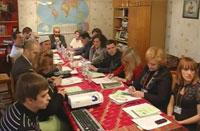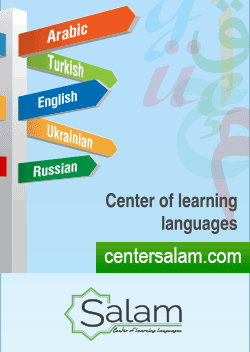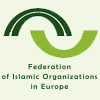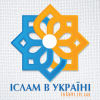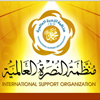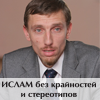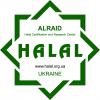Ukraine is home for a lot of national communities that peacefully communicate with each other and with native population. Yet, unfortunately, a situation like this has not established in all the countries, hence, the issue of xenophobia and tolerance is still acute today.
To eliminate these negative phenomena, round table “Xenophobia and tolerance i the contemporary world” was held on April 10, 2012, organized by the Institute for Oriental Studies and International Relations “Kharkovsky Kollegium”, jointly with the Islamic Cultural Center in Kharkov at the All-Ukrainian Association of Public Organizations (AAPO) “Alraid”.
The Institute for Oriental Studies and International Relations “Kharkovsky Kollegium”, which has recently celebrated the 20th anniversary, has a special role in building up partnership relations with the Oriental World, as it could become an education institution in this time, training high level specialists on the region. Many of its graduates take top level positions in diplomatic offices.
Dr. Yana Yudina, dean of the international relations faculty, assured the audience that, thanks God, the problem of xenophobia has never occurred within this higher education establishment (HEE): “Great numbers of young people come to us from various regions of Ukraine. They are aware of what they will learn here and that they will use their competencies in future when working in African or Eastern countries; it means that our students cannot have xenophobia-like attitudes by definition, as they have implicit readiness to work with foreigners”.
Yet, she believes that actions like this are extremely important for Kharkov where about 18,000 foreign students are trained, a city drawing foreigners’ interest as, above all, an industrial center.
Collaboration for better mutual understanding
The Islamic Cultural Center (ICC) of Kharkov has collaborated with the Institute for Oriental Studies and International Relations “Kharkovsky Kollegium” since long now. Mr. Sergey Putilin, head of the Muslim religious community, tells about agreement signed with this HEE, which involves lectures by ICC representatives on Arabic language and Islamic culture. Also, joint round tables and other events are organized, for discussing of and finding solutions for vital issues of the modernity; it is a good fundament for efficient work in future, which will be contributed in by religious communities of various confessions, located in Kharkov and Kharkov region.
According to Mr. Othman Shadi, ICC director, the existing agreement allows students of the Oriental Studies Institute to attend lectures delivered within ICC and devoted to themes specified by the Institute administration. Apart from allowing for knowledge acquisition on a specific theme, this introduces one to actions of ICC that is open each day, allows one to borrow required literature in the large ICC library, to talk with Muslims tete-a-tete, and ask them perturbing questions.
Also, ICC accommodates free weekend courses of Arabic language, which can be attended by everyone who wants, irrespective of nationality and confession.
Such a close collaboration encourages a better grasp of each others’ culture and setting up friendly and mutually beneficial relations.
Fear and hostility originates from ignorance
According to Mr. Islam Gimadutin, deputy-head of the Religious Administration of Muslims of Ukraine “Ummah”, lack of reliable information about a people of different nationality or religion always creates hostile attitudes to their life style, culture and ideals.
Such events, instead, help people to be better familiar with each other, improving in this way mutual understanding and removing groundless fears.
Round table “Islamophobia and tolerance in the contemporary world” deals with a very important problem that needs to be solved. Ukraine is now a multinational and multiconfessional state, and tolerant attitudes to each other are required for peaceful, productive and safe coexistence, cultural and moral enrichment of all the Ukrainian residents.
Reporter

